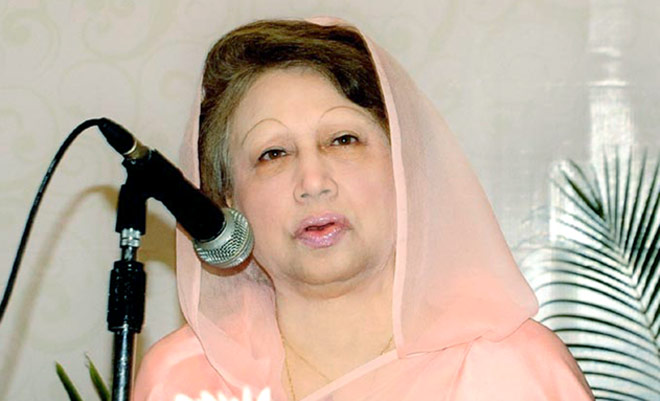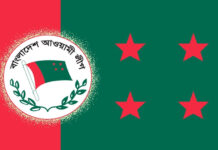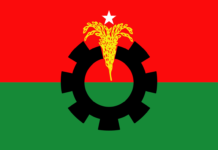Assuring that Bangladesh will never be a safe haven for militants, BNP chairperson Khaleda Zia has suggested India not to support Prime Minister Sheikh Hasina’s government.
In an exclusive interview with The Telegraph, the largest circulated English daily in Eastern India published from Kolkata, Khaleda also fears India is distancing itself from its neighbour by supporting the Awami League regime.
“India, which has a long and proud history of democracy, should stand on the side of the people of Bangladesh, as it did during our glorious War of Liberation in 1971. By extending support to a government that is in office through a fraudulent election and one which has seen the disenfranchisement of the public… India may distance itself from the people of Bangladesh,” she observed.
The former Bangladesh Prime Minister, however, stressed that her party BNP and she believes in working closely with New Delhi. “We also believe that such relations should be based on the universally-recognised principles of mutual benefit and respect.”
“As our closest neighbour, our relation with India is of added significance and relevance. I had reiterated this to the political leadership of India at every level during my visit to New Delhi in November 2012 at the invitation of the Indian government, when I was warmly received. My impression is that my assurances of friendship and mutually beneficial cooperation were deeply appreciated,” she added.
Replying to a question whether her party’s ties with India get affected if Narendra Modi comes to power, she replied that relations between Bangladesh and India should not be contingent on an individual or any particular political party. “It should be based on the need to address the interests of the people of the two countries and be responsive to their perceptions of each other. It’s for the people of India to decide whom they choose to govern their country. We believe in working closely with the elected government for furthering our relations.”
Khaleda refuted the allegation of Hasina government that BNP has been harbouring Indian militants from the Northeast terming it baseless, false and clearly motivated allegation.
Recalling her meeting with the Indian leadership in 2012, the BNP chief said, “I had assured them that the territory of Bangladesh shall never be allowed to be used by anyone against the interests of India or for anything that could threaten India’s security. Bangladesh has never been nor will it ever be a safe haven for militants.”
About her party’s alliance with the Bangladesh Jamaat-e-Islami and the Awami League’s allegation that the Islamist party has link with al Qaida, Khaleda said no terrorist threat should be taken lightly, nor should these be used for narrow political gains. “There’re differences between the political philosophies of the BNP and the Bangladesh Jamaat-e-Islami. Our relation with the Jamaat is an electoral alliance.”
There is, however, a history of political alliances between the Jamaat and other major political parties. The Awami League, for example, maintained very close alliance with the Jamaat going back to the 1980s and 1990s. It was also the Awami League that signed a memorandum of understanding with the fundamentalist party, Bangladesh Khelafate Majlish, in 2006. That MoU was aimed at legalising religious fatwa, the BNP chief mentioned.
Asked about the general perception that those war criminals undergoing life sentences will be released and rehabilitated by the BNP if it comes to power, Khaleda said, “We believe that anyone who has committed crimes against humanity should be held accountable and brought before the realm of law. The BNP will try all those who have committed crimes against humanity in Bangladesh through a process that is transparent and one that meets international standards.”
In the long interview, Khaleda also justified her party’s decision of boycotting the January 5 election and joining the upazila polls.
Asked whether she is in favour of a dialogue with Prime Minister Sheikh Hasina, the BNP chief said her party has consistently and positively responded to all domestic and international calls for dialogue in the face of continuous stalling and intransigence by the Awami League. “BNP, like the people of Bangladesh, believes it is imperative to hold meaningful dialogues between the major political parties for free, fair, credible and inclusive elections.”
About her pre-election “telephonic” conversation with Sheikh Hasina, Khaleda said the telephone conversation was a privileged communication between the leaders of the country’s top political parties. It should have been treated as such. The act of making it public by the government was inappropriate, motivated as well as a breach of trust.”
Source: UNBConnect










